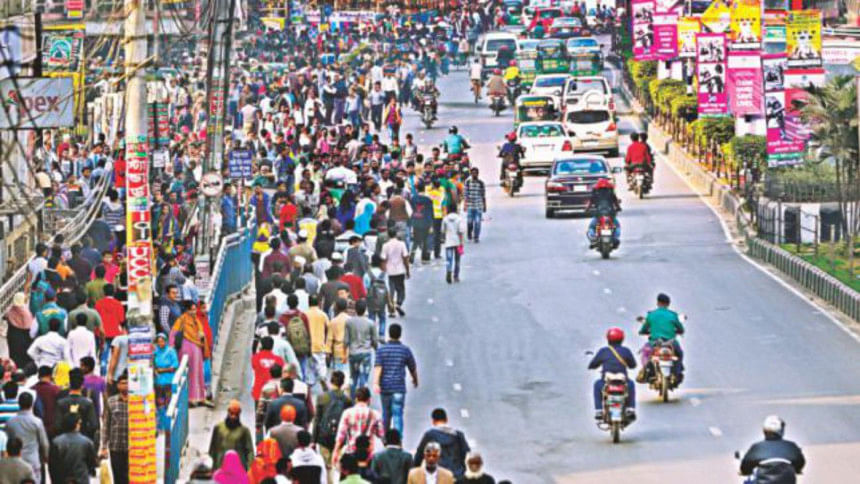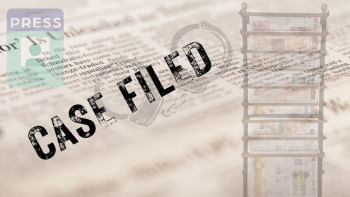“Victory for Democracy” indeed!

The two major parties celebrated January 5 this year in different ways, as they have been doing since 2014. But to start with, the BNP's intention to observe the day as "democracy killing day" was snubbed when its request to use Suhrawardy Udyan to hold a rally and observe the day in whatever way it wanted was denied after a period of suspense. A few inveterate optimists had predicted that the permission might come at the twelfth hour, if at all, like in some previous occasions, so as to give as little reaction time to the BNP as possible to organise any meaningful programme, or that, conditions would be laid as in the past that would be quite impossible for the party to meet within the limit prescribed by the DMP.
But even that didn't happen. It seems that the Udyan has become the exclusive preserve of the ruling party. And apparently to other parties, particularly the BNP, it is off limits. It would be unwise to think that the people cannot see through the DMP subterfuge to keep the BNP from using the Udyan. We wonder whether the AL ever seeks DMP's permission to use the spot, but not only that, look at the way some of the major roads of Dhaka are cordoned off from time to time because the AL, or some of its appendages, is holding some programme in the xapital. And when that happens, even those days meant for national celebration turn into days of public affliction.
However, the resolve of the BNP to hold a rally was matched by an open declaration by the AL that the BNP would be resisted if they attempted to create any mischief on January 7 in the name of observing the day. Even the BNP plan to hold a 'protest rally' the next day did not happen.
On the other hand, the AL observed what it termed "Victory of Democracy"on January 5. The party announcement to do so was received with a great deal of trepidation given the misery that was inflicted on the people of Dhaka city the previous day when the student wing of the ruling party celebrated its 69th anniversary, and there could be a repetition of the same on account of celebrations for "Victory of Democracy."
The parliamentary elections of 2014 may have been legally impeccable but morally sullied. The carrot and stick policy and very effective arm twisting, have left a bad example in our electoral history. And the blunder that the BNP committed by not participating in the election has given the AL a free ride and the power to call the shots at every instance. That, and the most injudicious and harmful strategy of violence that the BNP adopted, by outsourcing to Jamaat the task of perpetrating violence, has created apprehensions in the mind of the common people, some of whom may not endorse AL's electoral politics and the coalition's definition of democracy, but are unwilling to trust BNP to organise any political programme, there being a possibility of that degenerating into violence.
However, a redeeming feature is that the ruling coalition acknowledges, though not openly, that things must change, and the PM has articulated many times that the next election must be participatory and transparent. There is also, one feels, a revaluation amongst the BNP leadership that boycott was a bad idea and that they must also share the blame for what is occurring today, and there is also a sense of culpability for the violence in January 2014. The BNP has also softened its stand on many issues.
However, making the political space of the opposition shrink every day betrays weakness in the ruling party which is palpably clear to any discerning observer. Putting a party office under siege does not indicate victory for democracy in any way. And that begs the question: Has democracy really triumphed? The state of democracy today requires a dispassionate look at the situation by both the major parties. Because, one feels, both are responsible for the character that so-called democracy has assumed in Bangladesh at the moment which gives little cause for exultation.
It seems that there is still an element of uncertainty in the minds of the AL, and despite the much vaunted development in the country it appears hesitant to leave it to the people to be the final arbiter. Free and fair election is one of the indices of a functioning democracy, although not the only one. And for that there should be an accord on an acceptable means and method of holding the next election. We cannot afford another election of the type we saw on January 5, 2014. In that case, it will be anything but "Victory for Democracy."
The writer is Associate Editor, The Daily Star.

 For all latest news, follow The Daily Star's Google News channel.
For all latest news, follow The Daily Star's Google News channel. 



Comments